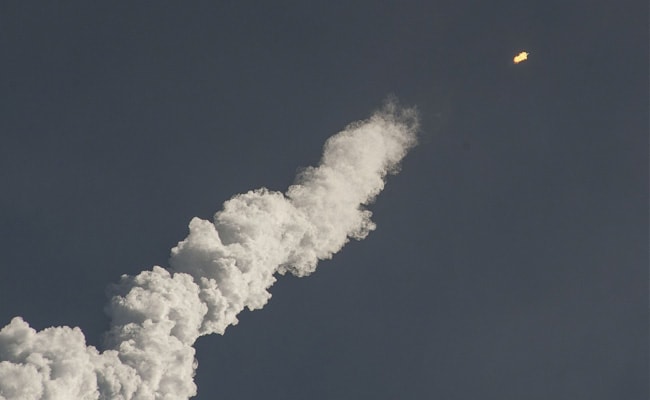Pakistan Expels Iran Ambassador After Air Strike, Recalls Envoy From Tehran


Iran launched missile and drone strikes on Pakistan’s Balochistan province (File).
New Delhi:
Pakistan on Wednesday recalled its top diplomat from Iran, hours after expelling that nation’s representative from its territory, and suspend all high-level visits, ongoing or planned, amid growing tension over Iranian air strikes yesterday on the Pakistani province of Balochistan.
A Foreign Office spokesperson told reporters Islamabad had summoned home its back its ambassador from Iran and that his Iranian counterpart, who is travelling, “may not return for the time being”.
“Pakistan has decided to recall its ambassador from Iran and the Iranian Ambassador to Pakistan, who is currently visiting Iran, may not return for the time being,” Mumtaz Zahra Baloch said.
Islamabad has condemned the attack that Iran says targeted the Jaish al-Adl terror group – which Tehran links to attacks on its security forces along the 1,000-km long border the two countries share.
READ | After Iraq, Iran Targets Baluchi Group With Missiles In Pakistan
However, a furious Pakistani government called the attack – which took place in Balochistan’s Panjgur region – an “unprovoked violation” of its airspace and a “completely unacceptable” incident that could have “serious consequences”. It has also said two children were killed in the airstrike.
Ominously, Pakistan also said it “reserves the right to respond…”
Iran’s foreign ministry has not commented on the strike, or reports of children’s deaths, so far, except for state media confirming “bases were hit, and destroyed, by missiles and drones”.
READ | Iran Attacked Pak’s Balochistan Hours After Top Leaders Met In Davos
Tehran and Islamabad frequently accuse each other of allowing militants to operate from the other’s territory to launch attacks, but missile strikes are rare. The Pakistani side has flagged this departure from the norm, stating, “… even more concerning that this illegal act has taken place despite the existence of several channels of communication… Pakistan has always said terrorism is a common threat to all countries in the region (and) requires coordinated action…” Islamabad said today.
As worrying is the fact that Iran’s attack came shortly after top leaders from each side met in Davos, on the sidelines of the ongoing World Economic Forum.
What is Jaish al-Adl?
The group, whose name translates as “army of justice”, was formed in 2012 as a Sunni militant group, and it operates primarily in Sistan-Baluchistan in southeast Iran, which is significant for India because the province is home to the Chabahar Port, which is of strategic importance for India.
Over the years, Jaish al-Adl has launched numerous attacks on Iranian security forces, including last month’s attack on a police station in which at least 11 police personnel were killed.
Iran had warned Pakistan to act against the group after an earlier attack, in 2019, declaring that if Islamabad would not take steps, then Tehran would.
What Is The Impact On India?
India may not be directly involved in this international incident, but New Delhi could still be impacted, one way or the other, since it is developing the Chabahar Port jointly with Iran.
READ | India, Iran Reach Final Agreement To Develop Chabahar Port: Report
Any terror group operating in the area is, of course, a cause for concern, for both sides. Iran’s strikes, therefore, are likely to be viewed favourably (behind closed doors) by India, particularly since the port also offers access (via Iran) to Afghanistan at a time when Islamabad is not keen on Delhi in that war-torn country.
NDTV is now available on WhatsApp channels. Click on the link to get all the latest updates from NDTV on your chat.

